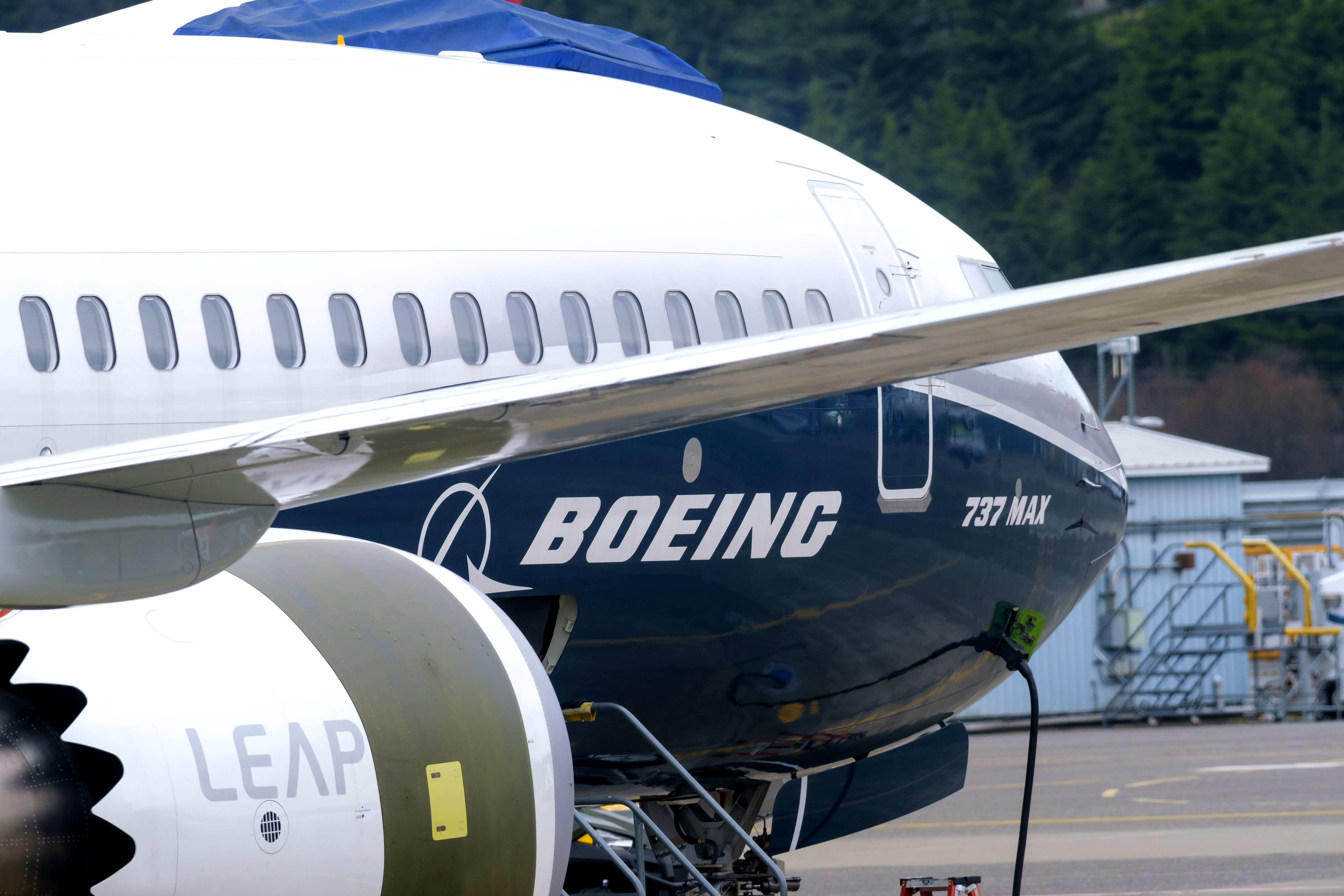
Indonesian rescue workers help remove a section of a Lion Air Boeing 737 from the sea four days after it crashed while trying to land at Bali's international airport near Denpasar on April 17, 2013.
SONNY TUMBELAKA | AFP | Getty Images
Boeing has responded to the public release of Indonesia's final report on the crash of a Lion Air 737 Max jet in October last year that killed all 189 people on board.
The report, released earlier Friday by Indonesia's National Transportation Safety Committee, concluded that Boeing needed to design better cockpit systems and that stronger oversight was needed by the U.S. Federal Aviation Administration (FAA) and other agencies.
Five months after the Lion Air crash, another 737 Max jet crashed just 6 minutes after taking off from Addis Ababa Bole International Airport in Ethiopia. This time 157 people perished.
Much focus for both crashes has been the Boeing-designed anti-stall system known as MCAS (Manoeuvring Characteristics Augmentation System), which repeatedly pushed the plane's nose down, fighting the actions of pilots.
In its response to the report from Indonesian regulators, Boeing said it was redesigning the Angle of Attack (AoA) sensors which inform the anti-stall system so that they would now turn the system on, only if both sensors agree.
Boeing added the MCAS would now only activate once to "erroneous" AoA data and would "always be subject to a maximum limit than can be overridden with the control column."
The U.S. plane-maker said the changes would prevent the flight conditions that caused the Lion Air crash from ever happening again.
Boeing is also updating crew manuals and pilot training.
Indonesia's damning report
In their report, Indonesian regulators said the MCAS system had repeatedly forced the plane's nose down, meaning pilots had to repeatedly apply 103 pounds of strength in an ultimately doomed attempt to right the plane.
The regulators concluded that: "The design and certification of the MCAS did not adequately consider the likelihood of loss of control of the aircraft."
It said there was evidence that a critical sensor hadn't been calibrated properly by a repair shop in Florida, nor had it been tested by Lion Air maintenance staff.
The report found that that Lion Air failed to ground the jet after faults were identified on earlier flights.
Crew were also criticized. The report said the Lion Air captain didn't adequately brief the first officer when handing over control just before the plane lost control.
Costs to Boeing
Boeing has said it still expects the FAA to lift the worldwide flight ban on the planes in the fourth quarter of 2019.
Earlier this week, Boeing said building costs for the 737 Max had risen by $900 million in the third quarter. This was on top of the $2.7 billion in extra production costs it had announced earlier this year
The full cost of redeveloping the 737 Max may not be known until there is a global consensus on the plane's safety.
In September 2019, the European Union Aviation Safety Agency (EASA) said it wanted a triple-agreement of AoA sensors rather than Boeing's proposed upgrade to a dual agreement.
Building a third sensor on every 737 Max would inevitably delay the plane's return to the skies and raise production costs enormously.
The share price of Boeing fell around 0.6% in after-hours trading. As the one-year anniversary of the Lion Air crash approaches, the stock is around 3% lower than exactly 12 months ago.
Now watch: How the Max grounding is affecting the industry
https://www.cnbc.com/2019/10/25/boeing-promises-to-fix-737-max-failures-found-in-lion-air-crash-report.html
2019-10-25 09:59:10Z
52780418130025
Tidak ada komentar:
Posting Komentar